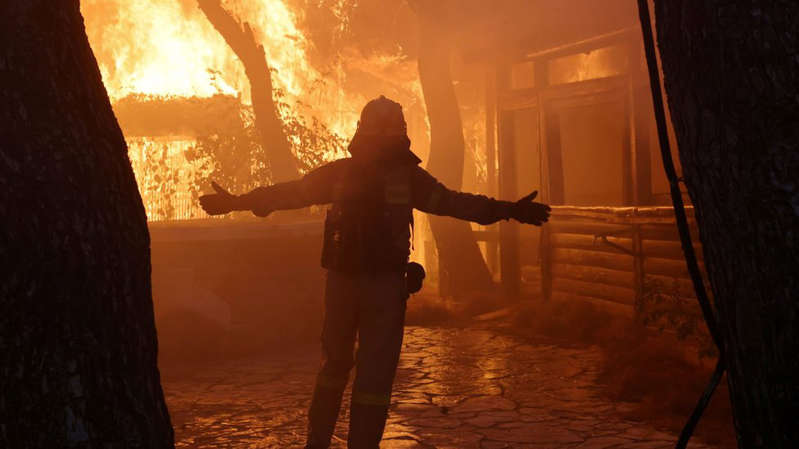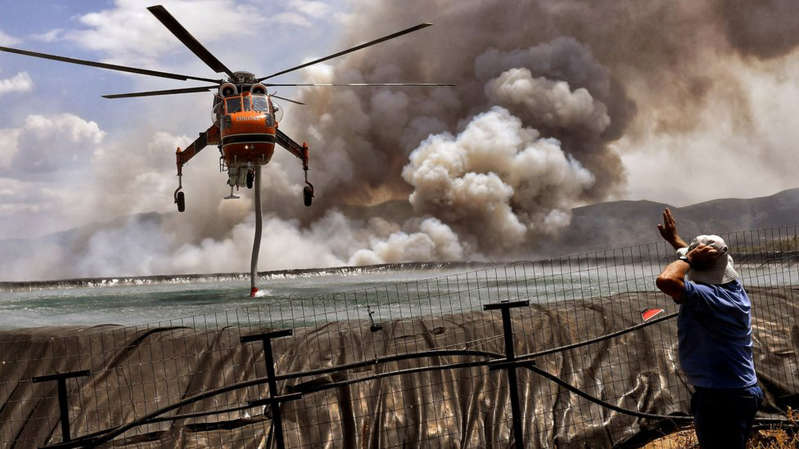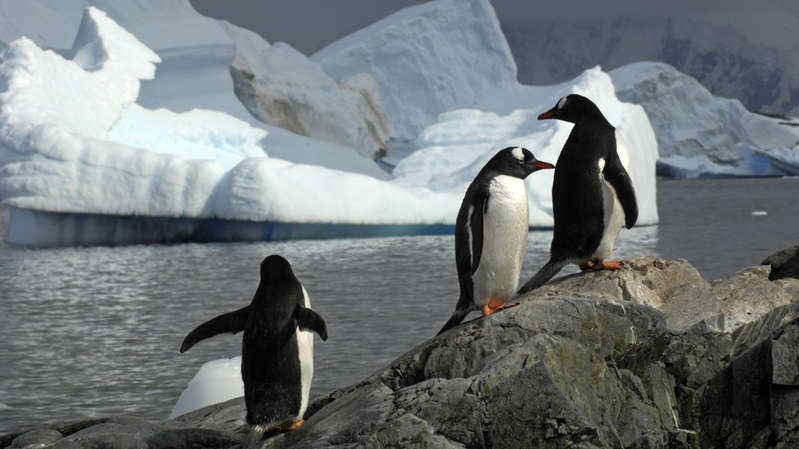
This summer won a prize at the Global Warming Olympiad and proved that the planet is not cooling down, but warming up. July 2021, for the second year in a row, received the bronze among the hottest on record in the world and silver in Europe.
European scientists tracking climate change in the center of Copernicus under the EU said Thursday that the main summer month was a third of a degree warmer than the average temperature over the past 30 years.
It was hotter only at the peak of the summer of 2016 and 2019, and then only by hundredths of a degree. And in Europe, July 2021 was second only to 2010, when, due to abnormal heat in the western part of Russia, the average temperature in Europe exceeded the indicators of the last 30 years by as much as 1.7 ° C.
However, not everywhere the population rescued under air conditioning in the traditionally warmest month of the year. Northwest Russia, Portugal and Germany were cooler than usual, and some were flooded.
That only proves the general trend of warming the planet, scientists say.
They have been unanimously saying for a long time that global warming is expressed not in the arrival of cozy warmth to replace the dull chilliness, but in the swinging weather “swing” between cold and heat.
This is because the warming of the planet leads to disruptions in the established cooling system and the circulation of water and air. Droughts, frosts, hurricanes, forest fires and floods are increasing.
- Killing heat: the number of victims of global warming goes to tens of thousands
- Global warming: The coronavirus has distracted the world from the climate crisis. How long?
- Abnormal summer 2020: flood, drought. Scientists promise the planet a new warming record
Heat from Sakhalin to Patagonia

Southeast Europe took on the heatstroke of July 2021. In the photo – a fire in Greece
July was warmer than average almost everywhere, according to the latest report from European meteorologists. And this is an unpleasant trend: nine out of 10 record hot July occurred in the last decade. Seven for the last seven years.
In Asia, extreme temperatures were recorded in Russia (in the Far East and Sakhalin), as well as in regions geographically close to it in Japan and China.
In the western United States and Canada, the heat has not subsided since the beginning of summer. North Africa was warmer than usual.
And in the southern hemisphere there were no cold weather. Winter in Patagonia turned out to be extremely mild, and Australia did survive the record heat for the entire time of observations.
- A new wave of floods – from Transbaikalia to London
- Fire trains and helicopters. How burning forests are being extinguished in the USA and Canada
But Europe took the brunt of the blow.
In the southeast of the Old World, the abnormal heat was especially noticeable, and forest fires in Greece, Bulgaria and Turkey confirm this. At the opposite end of the continent, Northern Ireland was suffocating, where a permanent coolness was reinforced both in consciousness and in its name. A similar situation occurred in July in Iceland and Greenland.
And the northeast was no exception. In Helsinki, such a sultry summer has not been seen since 2010, and before that – never at all. And this despite the fact that in July last year in Finland it was pouring two and a half times more than the norm and it was colder than usual by 1-2 degrees.
Conversely, in Portugal this time it was cool, and last July turned out to be the hottest in all 90 years of observations.
How bad is it? Find out on Monday
All this reads like reports from the front. And the world has long come to terms with the fact that it is so.
Climate change on the planet threatens humanity, as it is fraught with natural disasters, mass migration, flooded cities and fields, bankruptcies of insurance companies and states.

In the west of Antarctica, July was sunny and warm. True, it was colder than usual in the east of the continent. Winter is still …
Scientists have long identified the cause of climate change – emissions into the atmosphere as a result of human activities. And almost every country in the world has agreed to tackle this problem by reducing emissions.
They signed the Paris Agreement five years ago and pledged to keep the global average temperature rise at 1.5 degrees above pre-industrial levels.
However, the situation has worsened since then. Environmentalists argue that the planet is warming up twice as fast and that it is high time to set more ambitious goals.
- Electric cars and electric planes. Europe is the first in the world to outline a plan to fight climate change
They hope the starting point will be the global climate summit in Glasgow in early November. And the acceleration could be given by the landmark report that the UN will publish on August 9.
From it, we will learn how scientists' ideas about climate change on the planet have evolved since the last global report was released in 2013.
It will become the bible for environmentalists, politicians and businesses planning life for the coming decades. And by the revelation of John the Theologian for the generations who will have to live wonderful at this time.
A thousand-page summary of many years of research by leading world scientists will be released next Monday. At the same time, the BBC Russian Service will highlight it in detail and talk about how world science estimates the rate of global warming, how confident it is in the links between extreme weather events and climate change, what scenarios we will live on and how quickly the planet will heat up by those 1.5 degrees, about which it is written in the Paris Agreement.
And also about how soon the world will have to take on increased obligations, more actively switch to electric cars, give up coal and penalize for greenhouse gas emissions into the atmosphere.

